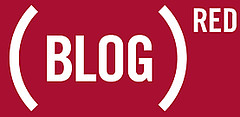Afghanistan
In Times online zu Afghanistan zu lesen:
The 1,500 British troops in Helmand have already encountered violent opposition from the resurgent Taleban and there is no doubt that allied operations have reached a critical phase. And as more troops prepare to deploy in the rebellious south, Nato governments must brace themselves for a long haul if they are to underpin the country’s fragile democracy and prevent a relapse into extremism, lawlessness and narcoterrorism. British commanders knew that the deployment in the south would be tough and are well prepared, unlike some of the other Nato troops, who are lightly armed and whose home governments have given only wavering support to the operation.
(...)
All 34 Afghan provinces are now affected by what United Nations officials call the “drug cultivation tragedy” — though they tend to exaggerate the extent of the problem. Ideally, a larger Nato force and much more money will be needed if peasants are to be weaned from growing poppies. Troops needed to help to destroy the crops and hunt down the drug gangs; and huge investment in irrigation, transport, agriculture and welfare is vital over the long term if poverty-stricken Afghans are to be persuaded to cultivate other crops.
Meanwhile, several issues must be addressed urgently. The first is to stop Pakistan becoming a haven for the Taleban. Increasingly, fighters are slipping across the border to resupply their forces, while Islamabad appears unwilling or unable to take action. Secondly, aid and reconstruction in the countryside must be stepped up to prove to citizens that a brighter future is within reach. Finally, Nato should define its mission more precisely. Afghanistan will be tough, but Britain, and others, must tough it out.
Ein langer und kostenintensiver Einsatz also, für den die NATO immer noch keinen Plan hat.

.png)


Keine Kommentare:
Kommentar veröffentlichen